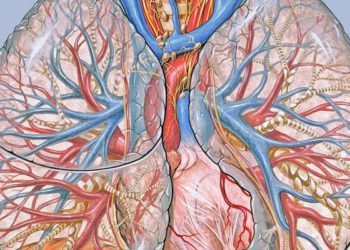Liraglutide significantly reduces risk for major cardiac events in elderly patients with diabetes
1. A significant reduction in major cardiac events among elderly patients was seen in the liraglutide treatment group.
2. The risk reduction of adverse cardiac events in the liraglutide treatment group seemed to vary with age.
Evidence Rating Level: 2 (Good)
Study Rundown: Type 2 diabetes mellitus (T2DM) continues to increase in prevalence among older adults, with significant associated morbidity and mortality. Liraglutide is among some of the newer treatments for diabetes and works through a glucagon-like peptide-1 agonist mechanism. This class of drugs has increased glycemic efficacy, with decreased risk for hypoglycemia compared to some other treatment options. The authors of this study examined the cardiovascular effects of liraglutide compared to placebo in older patients, finding that liraglutide significantly reduces the risk for major cardiac events in elderly patients with diabetes. The main limitation of this study was a short follow-up period and a smaller cohort of patients in the age category inclusive of adults aged 75 and up. Overall, this study suggests that liraglutide could be a beneficial treatment for elderly diabetic patients for reducing the risk of cardiac events.
Click to read the study in Annals of Internal Medicine
Relevant Reading: Liraglutide for weight management: a critical review of the evidence
In-Depth [randomized controlled trial]: In this post-hoc analysis of the LEADER trial the authors assessed the effects of liraglutide on cardiovascular outcomes of patients aged 75 and older, ages 60 to 74 and younger than 60 years. The study’s safety end points included the frequency of serious adverse events and medical events of special interest. When comparing the treatment group to the placebo group, there were no significant differences in adverse events regardless of age category. However, there were higher numbers of adverse events in the older age group generally. The calculated risk reduction of all-cause death with liraglutide compared to placebo in patients aged 75 years and older was 35% and 34% for major adverse cardiac events. This number was significantly lower for patients aged 60 to 74, where the risk reduction was 6% (P for interaction = 0.088) for all-cause death.
Image: PD
©2018 2 Minute Medicine, Inc. All rights reserved. No works may be reproduced without expressed written consent from 2 Minute Medicine, Inc. Inquire about licensing here. No article should be construed as medical advice and is not intended as such by the authors or by 2 Minute Medicine, Inc.







